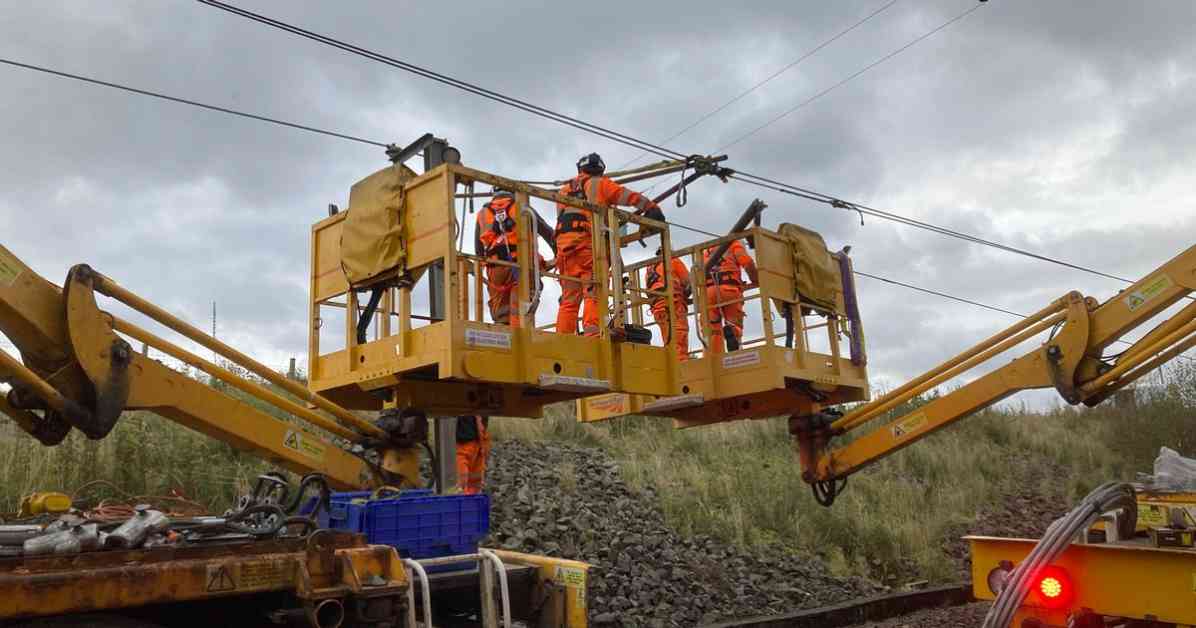Edinburgh commuters were faced with severe disruption on Thursday as a fallen tree on overhead cables in Dumfries and Galloway caused major issues for cross-border train services linking Edinburgh and Glasgow with Carlisle. The incident occurred at Beattock, between Lockerbie and Carstairs on the West Coast Main Line, leading to cancellations and revisions of services between Motherwell and Carlisle.
Rail operators quickly alerted passengers to the disruption, with Avanti West Coast advising travelers not to journey north of Preston and TransPennine Express recommending delays until Friday. National Rail issued a statement noting that all lines were closed due to an object caught on the overhead electric wires between Lockerbie and Carstairs, resulting in potential cancellations or revisions for trains between Carlisle and Glasgow Central/Edinburgh.
Network Rail Scotland provided updates on the situation, confirming that engineers were assessing the damage caused by the fallen tree at Beattock. Chainsaws were deployed to remove the obstruction, and repair work on the wiring was initiated. While the initial completion time for repairs was set for 9.30pm on Thursday, a delay pushed the estimated finish time to 10.30pm.
Avanti West Coast offered alternative travel arrangements for affected passengers, allowing them to use their tickets for travel on Friday at no extra cost. Refunds were also available for those who chose not to travel due to the disruption. Similarly, TransPennine Express advised customers with tickets for Thursday to defer travel to Friday, with no additional charges. Various alternative services were offered, including LNER, ScotRail, CrossCountry, and Northern routes.
Impact on Commuters
The fallen tree incident had a significant impact on commuters relying on the affected train services between Edinburgh and Carlisle. Many passengers faced delays, cancellations, and the need to seek alternative transportation options to reach their destinations. The disruption highlighted the vulnerability of rail infrastructure to natural elements and the challenges faced by both operators and travelers in such situations.
Response and Recovery Efforts
Rail operators and Network Rail worked swiftly to address the fallen tree incident and minimize the disruption to services. Engineers were deployed to assess the damage, remove the obstruction, and repair the overhead wiring to restore normal operations. Despite the initial delay in completing the repairs, efforts were made to expedite the process and keep passengers informed about the progress being made.
Lessons Learned and Future Preparedness
The incident at Beattock served as a reminder of the importance of proactive maintenance and monitoring of railway infrastructure to prevent disruptions caused by unforeseen events like fallen trees. It also highlighted the need for effective communication strategies to keep passengers informed and assist them in making alternative travel arrangements during such incidents. Moving forward, rail operators may consider implementing additional measures to enhance the resilience of the network and improve response protocols in similar emergencies.
In conclusion, the fallen tree incident on overhead cables in Dumfries and Galloway resulted in severe disruption for Edinburgh commuters traveling to and from Carlisle. While the incident caused inconvenience for passengers, the swift response and recovery efforts by rail operators and Network Rail helped minimize the impact and restore normal operations. The incident serves as a valuable lesson in the importance of infrastructure maintenance, communication, and preparedness for future challenges in the rail industry.













